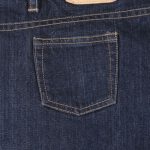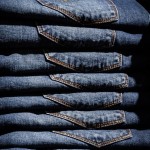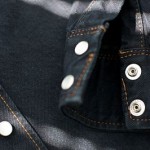
by MakeYourOwnJeans | Jackets |
Denim jackets continue to rank as one of the most popular types of men’s and women’s outerwear. As their name suggests, they are made of denim. All denim jackets are made of denim. When shopping for a denim, though, you may discover that some of them are prewashed. Prewashed denim jackets are still made of denim, but they differ from raw or dry denim jackets in several ways. What is a prewashed denim jacket exactly? Overview of Prewashed Denim Jackets Denim jackets can be classified according to the type of denim from which they are made. Prewashed denim jackets are made of denim that’s washed during production. They are still constructed of cotton; all denim consists of cotton. Prewashed simply means that the denim is washed in hot water during production. Prewashed denim jackets are also known as washed denim jackets. In addition to prewashed denim jackets, there are raw denim jackets. Raw denim jackets are not washed during production. They are constructed of the same cotton-based denim as their washed counterparts, but they aren’t washed during production. Instead, raw denim jackets are produced and sold without undergoing a washing process. Understanding the Washing Process Denim jackets are washed to achieve a naturally aged, worn-in appearance. Different manufacturers use different washing processes for their respective denim jackets and other denim garments, such as jeans. While there are nuances between these washing processes, most of them involve hot water. When producing a prewashed denim jacket, manufacturers will submerge it in a bath of hot water, which may or may not contain chemicals. Chemicals are oftentimes added to help accelerate the...
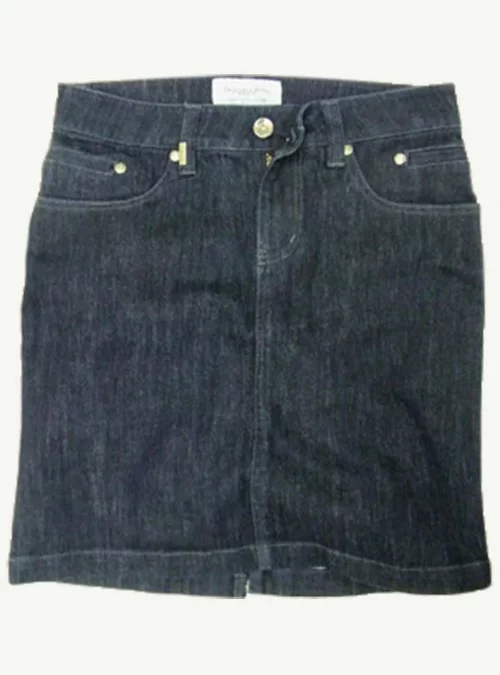
by MakeYourOwnJeans | skirts |
Denim has become synonymous with jeans. Consisting of a durable warp-faced cotton in which the weft goes under two or more warp threads, it’s been used to make jeans for over a century. All jeans, of course, are made of denim. A denim construction is what distinguishes jeans from other types of trousers. But didn’t isn’t limited to jeans. It’s used to make other garments, including skirts. Denim skirts have become a popular alternative to traditional skirts. While you may have seen or even worn a denim skirt before, there are probably some things you don’t know about them. #1) Available With the Same Pockets as Jeans Denim skirts are available with the same pockets as jeans. As you may know, jeans have pockets. They typically have two standard-size pockets on the front, another two standard-size pockets on the back and two smaller “watch” pockets within the front pockets. The smaller pockets are known as watch pockets because they were originally designed for pocket watches. Pocket watches have since been replaced with wristwatches and smartphones. Nonetheless, many manufacturers continue to use them in their jeans. Denim skirts are available with the same pockets as jeans, so you can expect to find four standard-size pockets and two watch pockets. #2) Plain vs Stretch Denim All denim skirts are made of denim. With that said, some of them are made of plain denim, whereas others are made of stretch denim. If you’re going to buy a denim skirt, you’ll need to decide which type of denim is right for you. Plain denim is 100% cotton. It features the weft going under...
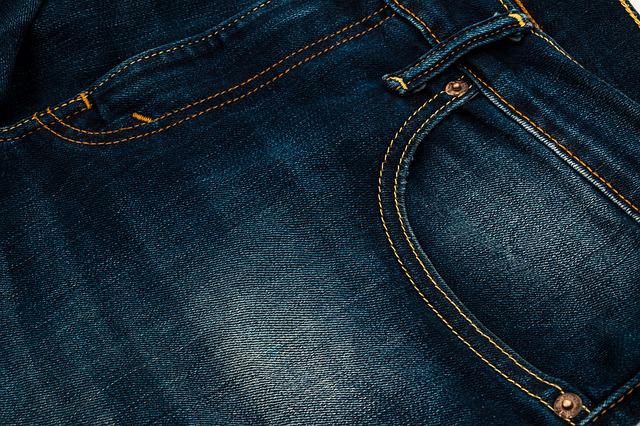
by MakeYourOwnJeans | jeans |
Want to minimize your environmental footprint? A Pew Research Center survey found that three-quarters of U.S. adults are concerned about the environment. In light of Earth Day, there’s no better time than the present to take action. Following these six eco-friendly tips on maintaining jeans, for instance, will minimize your environmental footprint. #1) Choose 100% Denim Jeans When shopping for jeans, check the tag or description to see what they are made of. Jeans made of 100% denim are better for the environment than those made of denim and a synthetic fabric. Denim is an organic fabric, meaning it’s all natural. Synthetic fabrics like nylon are not all-natural. They are derived from chemicals. By choosing jeans made of 100% denim, you can rest assured knowing that they are all natural. Jeans made of 100% denim don’t contain any synthetic fabrics in their construction. Rather, they are made entirely of denim, which is essentially cotton. #2) Wash Less Frequently You don’t have to wash your jeans each time you wear them. As long as they aren’t visibly dirty, you can typically wear them multiple times. Doing so, of course, is good for the environment. Washing your jeans less frequently will preserve water and energy. Jeans also last longer when washed less frequently. Washing machines are aggressive. As your jeans tumble around inside of the drum of a washing machine, they’ll degrade. You may not notice any signs of damage initially, but washing your jeans dozens or hundreds of times may eventually degrade them. Therefore, you should consider washing them less frequently. It’s good for your jeans, and it’s good for...
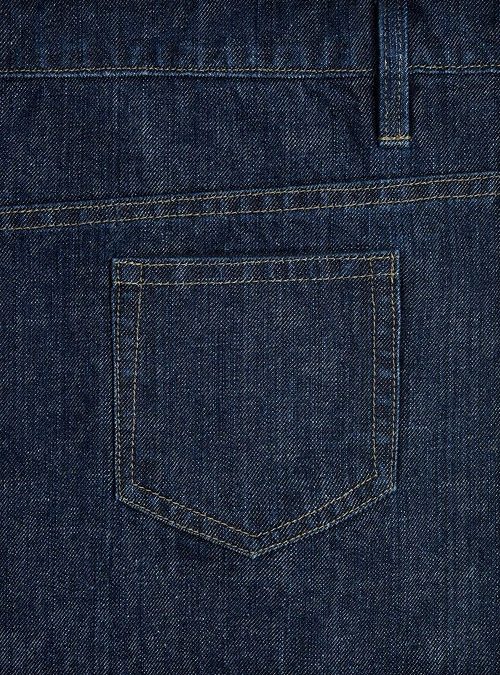
by MakeYourOwnJeans | denims |
Denim has become one of the world’s most popular textiles. It’s used to make everything from jeans and shorts to jackets, skirts and even dresses. As you may know, denim is a warp-faced textile consisting of cotton that features the weft going under two or more warp threads. The end result is a soft yet durable textile that outperforms many other textiles. While all denim is soft and durable, its quality may vary. There’s high-quality denim, and there’s low-quality denim. When shopping for denim garments such as jeans, you might be wondering how to spot premium denim. Premium denim typically shares some common characteristics, including the following. Deep Color Premium denim has a deep color to it. It’s not faded, nor is it soft. When producing premium denim, manufacturers dye the raw cotton material to achieve a deep color. They’ll use an adequate amount of dye to achieve a deep color. In comparison, low-quality denim is oftentimes made with less dye, resulting in a faded or soft color. You can find jeans and other denim garments in a variety of colors. Blue has become synonymous with denim. When shopping for denim garments, you’ll probably encounter light blue and dark blue colors. With that said, denim garments are available in dozens of other colors. Regardless of your preferred color, you should take a moment to inspect it. A deep color is a sign of premium, high-quality denim. A faded color, on the other hand, may indicate a lower-quality denim. Selvedge Selvedge denim is classified as a premium type of denim. Like all denim, it consists of cotton. Selvedge cotton, though,...
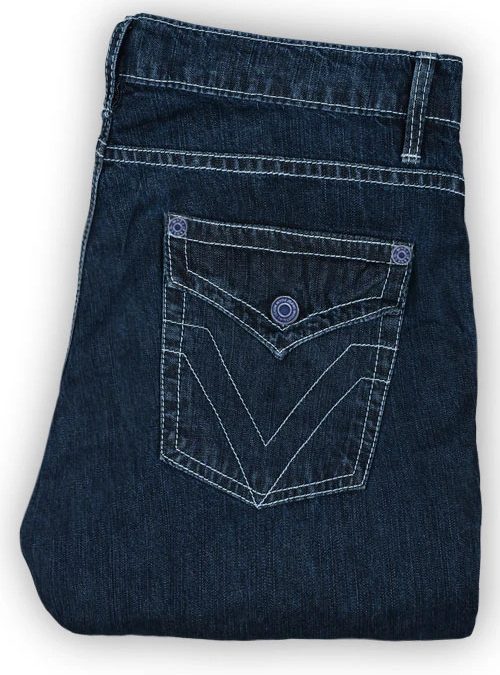
by MakeYourOwnJeans | jeans |
The next time you go shopping for pair of jeans, you should consider choosing lightweight jeans. Jeans are available in different weights. There are lightweight, medium weight and heavyweight jeans. While they are all made of denim, the total weight of their respective denim varies. Lightweight jeans weigh less than both medium and heavyweight jeans. With their lightweight construction, they offer several benefits. Why should you choose lightweight jeans exactly? Below are seven undeniable reasons to choose lightweight jeans. #1) Easier to Wash Lightweight jeans are easier to wash than medium and heavyweight jeans. All jeans require washing. Regardless of how much weight, you’ll have to wash your jeans so that they don’t develop stains or other superficial blemishes. With that said, lightweight jeans are typically easier to wash than medium and heavyweight jeans. They don’t require as much water, nor do they require as much detergent. Lightweight jeans are made with less denim, which makes washing them a breeze. You can wash them using less water and less detergent. And because they require less water and detergent, they offer cost-savings benefits. You’ll probably up save money when washing lightweight jeans. #2) Dries Quickly You can rest assured knowing that lightweight jeans will quickly dry. After washing them, of course, you’ll probably want to dry them. You can either line dry or machine dry lightweight jeans. With their lightweight construction, they’ll quickly dry. This rings true anytime your lightweight jeans get wet. If you wear them on a rainy day, for instance, they’ll quickly dry when the sun comes out and it stops raining. All jeans will dry when...







